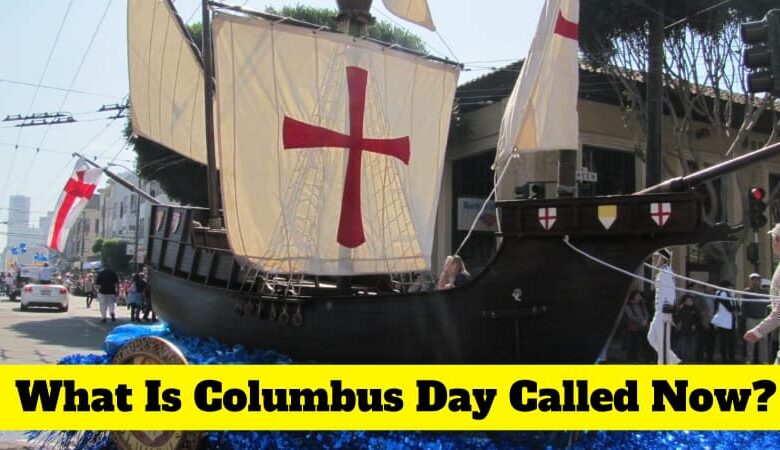What Is Columbus Day Called Now? Evolution of a Federal Holiday

Columbus Day, traditionally celebrated on the second Monday of October, has been a controversial holiday in the United States for years. Once seen as a day to honor Christopher Columbus for his “discovery” of the Americas, the holiday is now being reconsidered across many states and cities. The debate surrounding what is Columbus Day called now stems from a growing recognition of the atrocities committed against Indigenous peoples during colonization.
As of today, Columbus Day is increasingly being referred to as Indigenous Peoples’ Day. This shift reflects a broader movement to acknowledge and honor the histories, cultures, and contributions of Native Americans, rather than celebrating the legacy of colonization. While Columbus Day remains a federal holiday, its observance has dramatically evolved across the nation.
The Historical Background of Columbus Day
Columbus Day was established as a national holiday in 1937, largely due to lobbying by Italian-American groups. The day was seen as a celebration of Columbus’ 1492 voyage and a symbol of pride for Italian immigrants. For decades, Columbus Day was observed with parades and celebrations across the U.S.
However, in recent years, historians have highlighted that Columbus’ arrival in the Americas initiated centuries of violence, forced labor, and the displacement of Indigenous peoples. As these facts have gained more public awareness, the calls to rethink and rename Columbus Day have grown louder.
Why Indigenous Peoples’ Day?
The transition to Indigenous Peoples’ Day reflects a national reckoning with the darker aspects of American history. The day aims to honor the Indigenous communities who lived in the Americas long before Columbus set foot on the continent, as well as to recognize their enduring contributions to society. The movement to rename Columbus Day has gained momentum as part of a broader effort to address historical injustices.
States That Have Adopted Indigenous Peoples’ Day
As of 2024, over 20 states have officially recognized Indigenous Peoples’ Day, either in place of or alongside Columbus Day. Among these states are California, Maine, Vermont, and New Mexico. Additionally, Washington, D.C., and cities like Seattle, Los Angeles, and Denver have also adopted the new holiday name.
Other states, however, continue to observe Columbus Day, often with a mix of celebrations and protests. In places like New York and New Jersey, Columbus Day parades still draw large crowds, while advocates for Indigenous Peoples’ Day organize alternative events to raise awareness of the holiday’s controversial legacy.
The Controversy: Columbus Day vs. Indigenous Peoples’ Day
The debate over what is Columbus Day called now stems from differing views on history and heritage. Supporters of Columbus Day argue that the holiday is a celebration of Italian-American culture and a recognition of Columbus’ role in shaping the modern world. For many Italian Americans, Columbus Day is a day of pride, representing their immigrant ancestors’ struggle for acceptance in the United States.
On the other hand, proponents of Indigenous Peoples’ Day view Columbus’ arrival as the beginning of centuries of exploitation, violence, and oppression of Native peoples. For them, replacing Columbus Day with Indigenous Peoples’ Day is a way to correct the historical narrative and honor the resilience and survival of Indigenous cultures.
How Schools and Organizations Are Observing the Holiday
As the name and meaning of the holiday change, so too do the ways in which it is observed. Many schools and organizations now focus on educational programs about Native American history, culture, and current issues. Events might include lectures, cultural performances, and discussions about the historical impact of colonization.
In some areas, schools have stopped recognizing Columbus Day altogether, instead using the day to teach students about Indigenous cultures and histories. This shift reflects a broader educational movement to ensure that students learn about all facets of American history, including the often overlooked narratives of Indigenous peoples.
The Federal Status of Columbus Day
Despite the growing trend of replacing or supplementing Columbus Day with Indigenous Peoples’ Day, Columbus Day remains a federal holiday. This means that federal offices and institutions, such as the U.S. Postal Service, remain closed on the second Monday of October, regardless of local or state-level changes.
However, some federal employees have voiced their support for changing the name of the holiday nationwide. As of now, there is no consensus at the federal level regarding the official name of the holiday, and it continues to be a topic of debate among lawmakers.
Cultural Shift and the Future of Columbus Day
The evolving conversation about what is Columbus Day called now is part of a larger cultural shift happening in the United States. As more Americans become aware of the true history of Columbus’ arrival in the Americas, the support for Indigenous Peoples’ Day continues to grow.
For those advocating for change, the hope is that Indigenous Peoples’ Day will eventually replace Columbus Day at the federal level. Until then, the holiday remains a point of contention, with different states and cities choosing to observe it in their own ways.
The future of Columbus Day remains uncertain, but what is clear is that the conversation around it will continue to evolve as America grapples with its historical legacy and strives for a more inclusive recognition of its past.
Conclusion: The Importance of Recognizing Indigenous Peoples
In answering the question of what is Columbus Day called now, we are reminded that history is not static. The shift from Columbus Day to Indigenous Peoples’ Day is emblematic of a broader movement to correct historical inaccuracies and honor those whose stories have been marginalized.
As we continue to rethink how we commemorate our nation’s history, it is important to recognize the contributions of Indigenous peoples and to ensure that their voices are heard. Indigenous Peoples’ Day is not just about the past—it is a celebration of resilience, survival, and the ongoing influence of Native American cultures in our society today.




